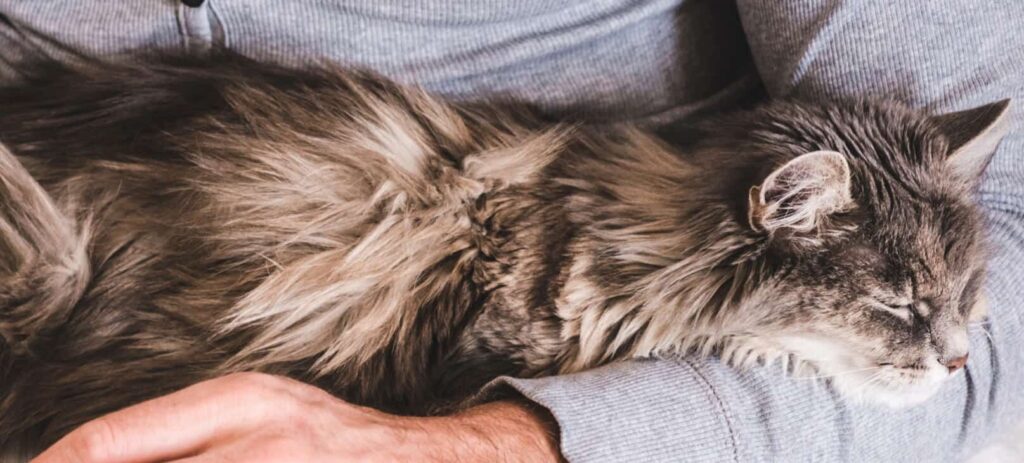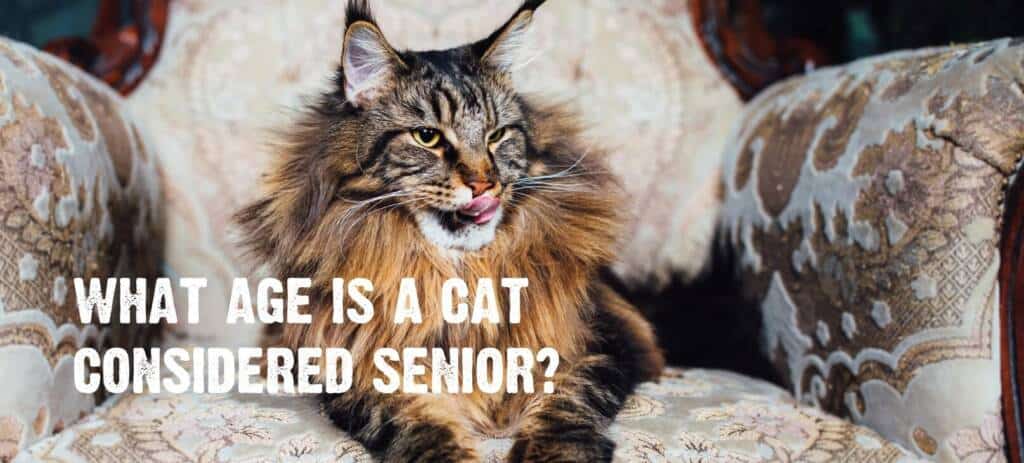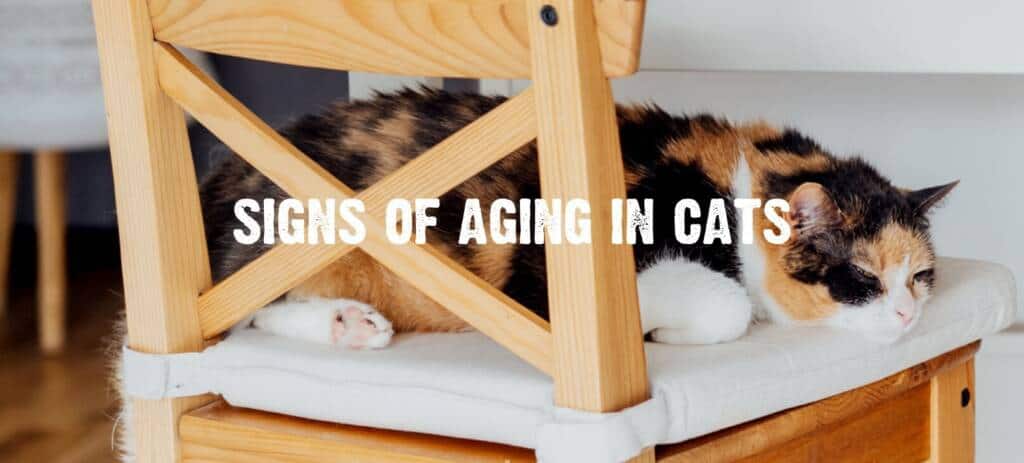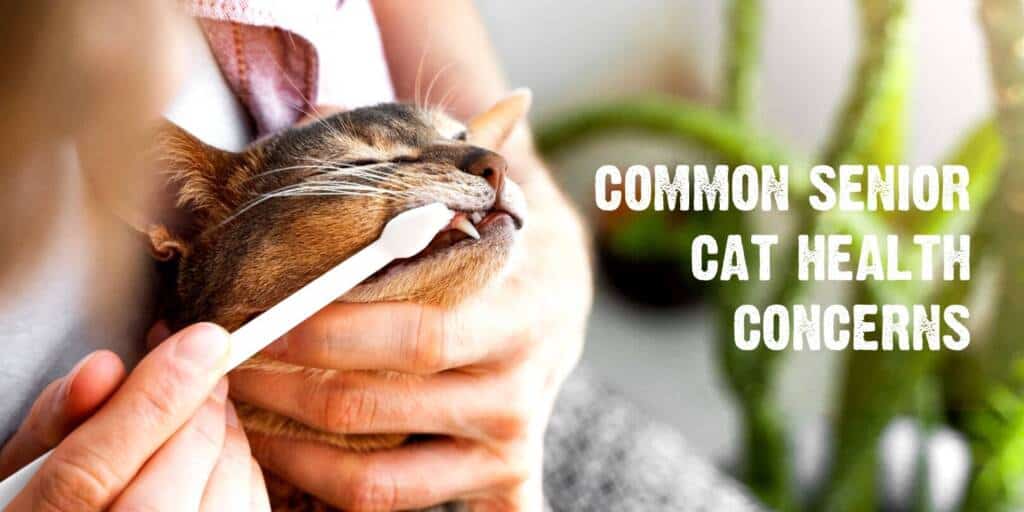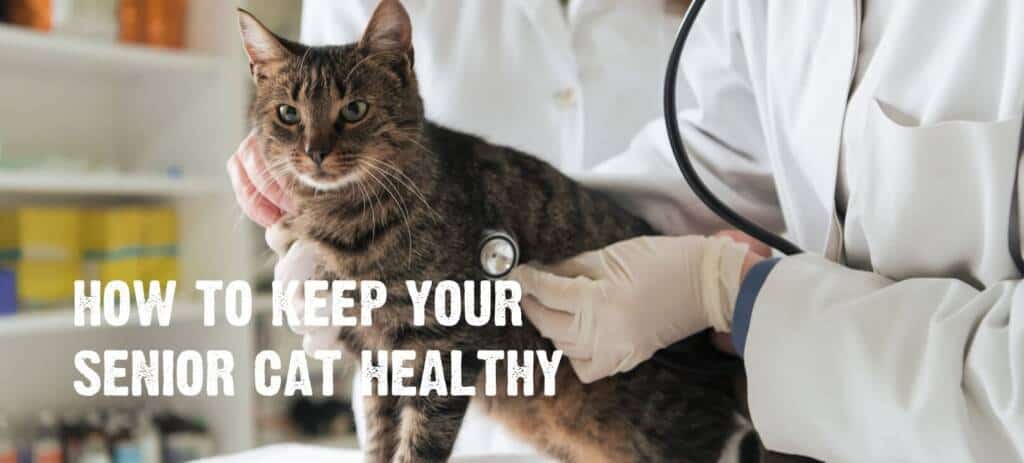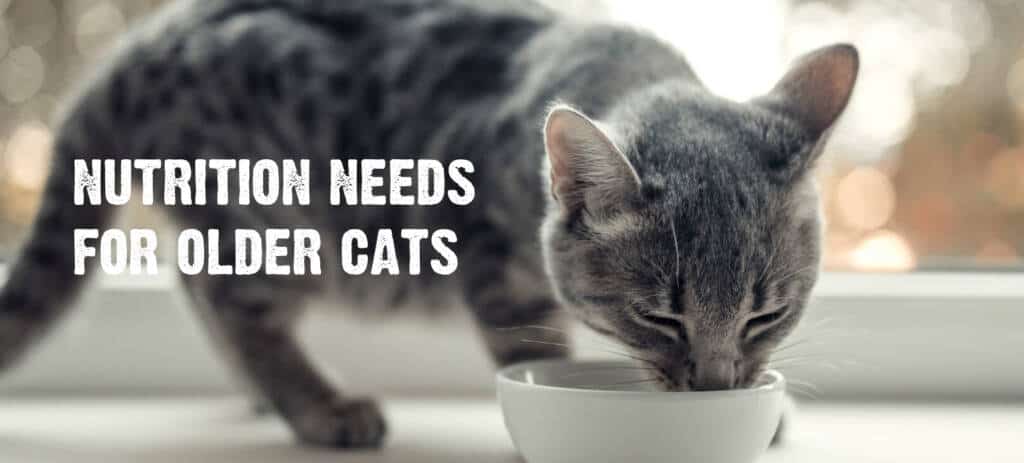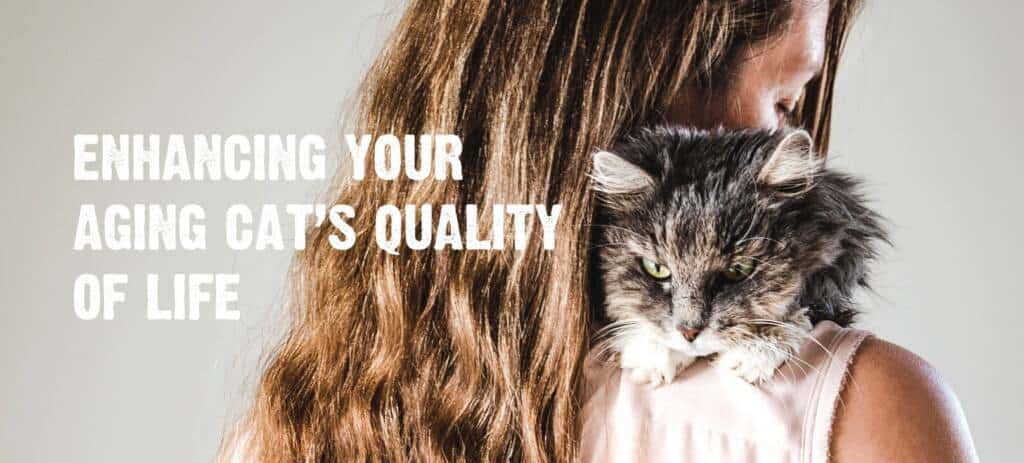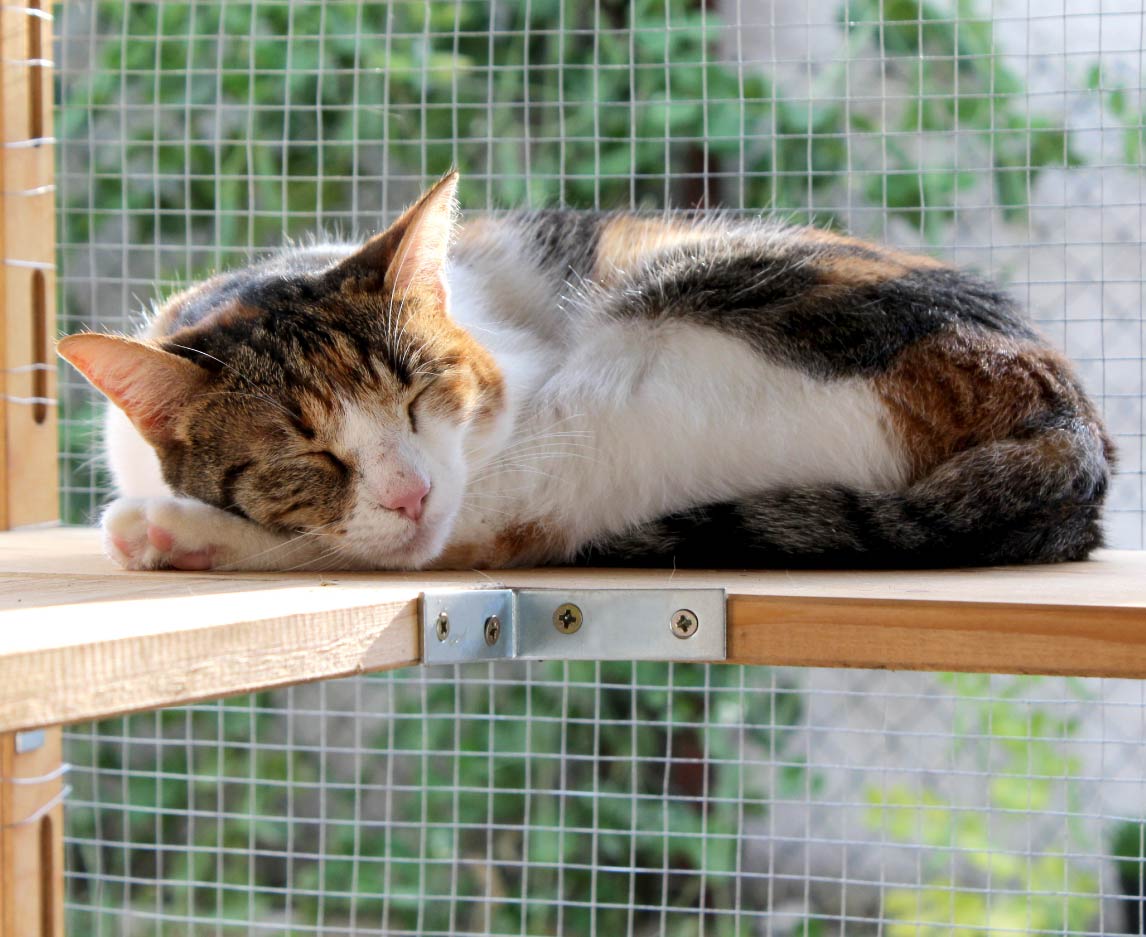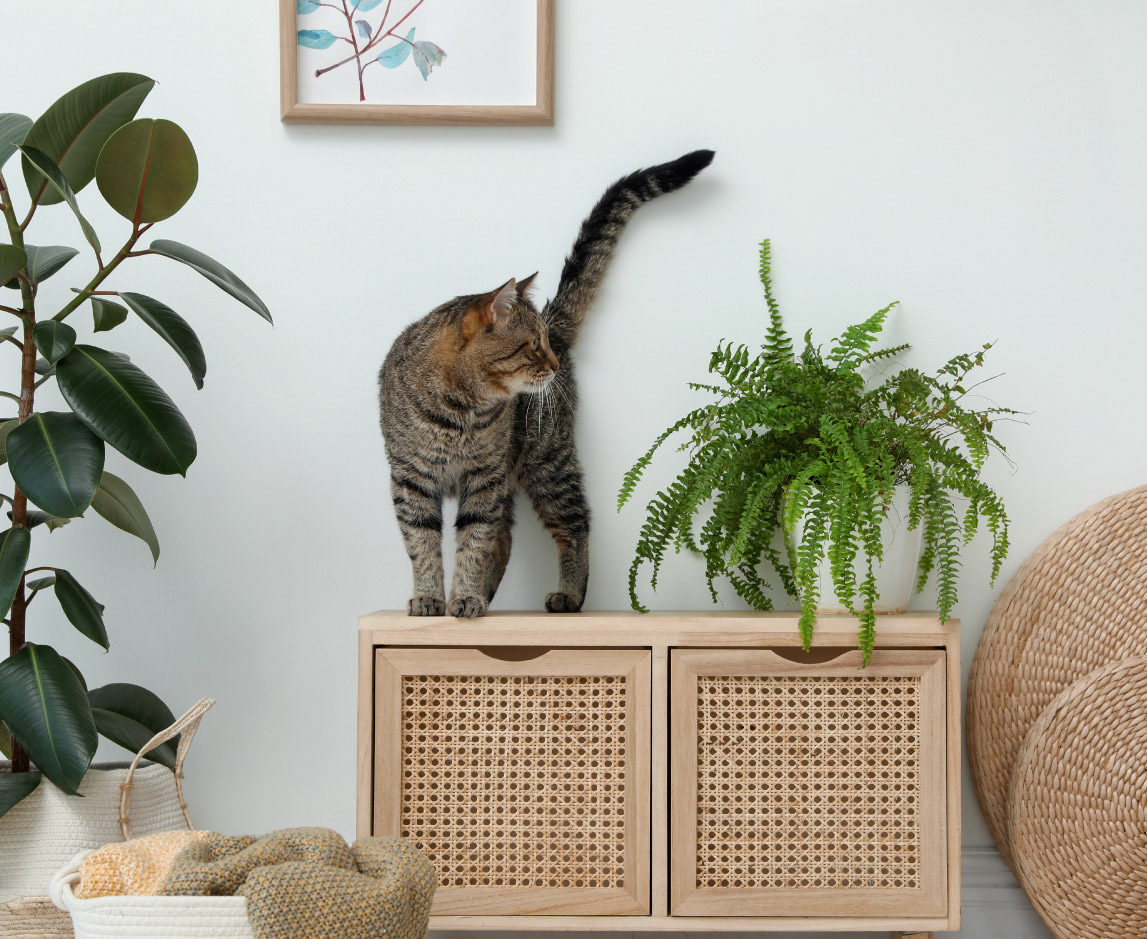Cats are living longer, and it’s important for owners to adapt to meet their changing needs. Whether you’ve had your cat since they were young or you adopted a senior feline, this guide will help you recognize signs of aging, common health concerns and how to provide proper care.
We’ve compiled everything you need to know, from what age a cat is considered senior to how you can ensure their health, well-being and happiness throughout the aging process. Read on to learn how to understand and support your beloved senior cat.
What Age Is a Cat Considered Senior?
Veterinarians consider senior cats to be between the ages of 11-14 years old. Geriatric cats are 15 years and above and require additional attention and specialized geriatric cat care, such as more frequent blood work and yearly exams.
As with humans, cats’ bodies change as they age. Understanding the different stages of the aging process can help you provide proper elderly cat care and promote continued health and well-being.
Signs of Aging in Cats
It can be hard to notice aging signs in cats. Not only do changes appear gradually over time, but felines also tend to hide discomfort and weakness. Here are common behavioral and physical indicators to look for or monitor as your cat gets older.
Changes in Behavior
Familiarizing yourself with senior cat behavioral changes can help you determine how your feline is faring throughout the aging process.
Eating habits: Keep an eye on your cat’s food intake. Senior cats may experience a lack of appetite or become pickier about food choices.
Anxiety and aggression: When a feline’s sensory perception changes, or they experience cognitive decline, they may display heightened emotional responses.
Litter box habits: If you notice your cat is urinating outside the box, it may indicate underlying age-related health issues.
Decreased activity: Cats generally become less active as they age, instead preferring to rest or sleep for long periods of time.
Physical Changes
Physical changes can also impact overall well-being throughout the aging process. Understanding what to look for can help inform the support your cat needs.
Weight: Some cats gradually lose weight as they age, while others gain it due to changes in metabolism or activity level. If your cat’s weight fluctuates, keep an eye on their eating habits to determine if further action (e.g., different food or a vet visit) is necessary.
Hearing and vision loss: If your cat is not responding to auditory cues or has difficulty navigating familiar environments, it may signify reduced sensory perception.
Vocalization changes: Cats may meow more frequently or experience changes in their tone as they age. This is generally a result of cognitive decline, which can cause cats to become anxious or irritable.
Mobility: Senior felines commonly encounter reduced flexibility, stiffness or trouble jumping and climbing to their favorite spots.
If changes to your cat's physicality affect their ability to navigate their environment, help them adapt by making it easier to access food, rest areas and their litter box.
Common Senior Cat Health Concerns
Recognizing potential health concerns at an early stage can help you manage and overcome them. We’ve listed some of the most common health concerns for senior cats, so you can be prepared to address symptoms or signs they may exhibit.
Arthritis
If your cat is slowing down, unable to groom themselves or has stopped jumping to their favorite windowsill, they may be struggling with arthritis. Arthritis is a common condition senior cats face, which can lead to swollen or painful joints and significantly impact their quality of life.
If you recognize any symptoms, it’s best to consult a veterinarian. They can accurately diagnose your cat by performing X-rays or physical examinations and help you tailor a pain management plan. There are several ways to address arthritis, such as potential medication, change in diet or procedures. The right course of action will depend on your cat and the severity of their individual diagnosis, so work with your vet to best help improve your cat’s mobility and reduce discomfort.
Dental Problems
Oral health problems are highly prevalent among senior cats. In addition to being painful, they can impede a cat’s ability to eat. If you notice your cat has lost their appetite, is dealing with persistent bad breath or has been drooling excessively, they may be dealing with dental health concerns.
Again, reach out to a veterinary professional to examine your cat’s oral health and recommend the right course of action. Your cat may need a professional cleaning, procedure or medication to alleviate pain and restore their dental health and oral hygiene.
Kidney Disease
Kidney disease develops over time and most commonly affects cats over 10 years old. If your cat is experiencing gradual weight loss, poor coat quality, increased water intake or if they’ve been missing the litter box, their kidneys might not be functioning properly.
Contact your vet for a proper diagnosis and treatment plan. While kidney disease is non-reversible, early detection and support can help you properly manage the disease and improve your cat’s quality of life. Dietary changes, hydration and making your cat’s litter box more accessible can help promote your cat’s longevity and alleviate the stress that may result from the disease.
Cognitive Dysfunction
Cognitive decline commonly affects senior cats and is most noticeable through behavioral changes. If your cat is getting lost in familiar areas, demonstrating signs of irritability (e.g., increased meowing or anxiety) or they’ve lost their appetite, it can indicate cognitive dysfunction.
Help your cat by creating regular exercise routines, providing mental stimulation with interactive toys and maintaining consistent feeding schedules. Vitamins and supplements can support brain health, too. Always consult your cat’s veterinarian before incorporating something new into their diet to ensure it's safe.
Weight Loss
It’s normal for senior cats to experience weight loss, but it is also important to recognize it as a possible indication of underlying health concerns. Kidney disease, diabetes, dental disease and cancer can all impact your cat’s appetite or physical ability to eat. If your cat has a noticeable decrease in appetite or has shown severe symptoms like diarrhea or vomiting, consult your vet immediately. They will help you determine if your cat is dealing with a serious health concern and offer helpful tips.
Senior cats need specific ingredients and proper nutritional care to maintain a healthy weight. Promote your cat’s overall health and well-being by providing all-natural cat food like RAWZ, which contains the necessary nutrition and hydration your cat needs to thrive throughout the later stages of their life.
How to Keep Your Senior Cat Healthy
One of the best ways to promote the health and longevity of your senior cat is to provide them with proper nutrition and habits, as well as veterinary care. Here are a few ways to help support your cat as they navigate their later years.
Exercise
Older cats can struggle with physical challenges like arthritis and weight gain, which can negatively affect their quality of life. Encouraging low-impact exercise with toys or by placing their food in small portions around the house can inspire them to jump, move around and stimulate their mind while keeping their body fit and healthy.
Grooming
Senior cats often have trouble grooming themselves. Help your feline maintain a smooth coat by removing mats with a soft brush. You can also assist in keeping your cat clean and comfortable by trimming their claws weekly and carefully wiping any discharge from their face or anus. Grooming your cat is not only helpful but a great opportunity to examine your cat’s physical well-being and spot potential bumps or sores that may require professional attention.
Dental Care
Dental hygiene is important to a cat’s overall health. Regularly perform dental checks and monitor your cat’s gums to identify potential dental issues as early as possible. You can also help them maintain good oral hygiene by brushing your cat’s teeth daily with toothpaste specialized for older cats. Lastly, keep an eye on your cat’s eating habits. A decreased appetite can signify potential dental health concerns that warrant care from your veterinarian.
Environmental Changes
Senior cats are sensitive to changes in their environment because it can impact their ability to access food, water, resting areas or their litter box. If you’re moving locations entirely, or even just items around your home, always ensure your cat has easy access to their basic needs to help alleviate stress.
Proper Nutrition
If you feel something is off with your cat’s nutrition, there might be a reason behind it. Diseases can cause senior cats to lose their appetite, while other felines are more susceptible to obesity. If your cat’s weight fluctuates noticeably, don’t hesitate to contact a veterinary professional. Blood work can help determine underlying causes and nutritional needs.
If your cat requires a change in diet, be sure to incorporate new foods slowly. Drastic changes can cause stress. Keep in mind that senior cats have special nutritional needs, consisting of lower-calorie and higher-protein diets. Providing your cat with food like RAWZ can help ensure they receive the specific ingredients required for a healthier and increased quality of life.
Reducing Stress
Change provokes stress and anxiety in cats, especially as they age. New environments, new pets in the household and visits to the vet can be difficult for your senior cat to handle. Pay attention to your feline’s behavior and take steps to make their life a little easier. Familiar objects, such as blankets or toys and additional affection or attention can help alleviate stress and make change more manageable.
Regular Vet Checkups
Cats are good at hiding illness, so don’t wait until your cat shows severe symptoms or distress to schedule a vet visit. As cats get older, frequent visits to the vet can help detect potential health problems in the initial stages, so it’s best to schedule checkups every six months. And, as always, if you notice changes in your cat’s physical appearance or behavior, don’t hesitate to call your vet with any concerns.
Tips for Enhancing Your Aging Cat’s Quality of Life
As your cat faces physical and behavioral changes in the later stages of their life, there are many things you can do to help ease the aging process. Here are some tips to help you care for and support your senior cat.
Love and Care
One of the most effective ways to reduce stress and show your cats you care is to shower them with love and affection. When caring for senior cats, it can be hard to see them struggle with the changes and perhaps even frustrating to deal with some of the repercussions. Have patience with your cat and yourself as you work through the changes and challenges. A little love goes a long way.
Create a Cat-Friendly Environment
Make your elderly cat’s life easier by slightly altering their environment to make it more comfortable and easier to navigate. The best way to see what kind of change will most effectively benefit your cat is to monitor their behavior. If they’re struggling to use their litter box or climb the stairs, help them by making your home more accessible.
Recognizing your cat’s physical limitations and making small changes like placing shallow steps or ramps to help them reach their favorite spots can significantly impact their quality of life.
Mental Stimulation
Senior cats often struggle with cognitive decline. Keep your feline’s mind sharp by introducing new toys to explore and introducing low-movement commands to help stimulate their brain. Encouraging them to raise their paws, play with puzzles or wand toys and search for their meals in new areas of the house can help strengthen their minds and keep them mentally fit.
The best way to support your senior cat throughout the aging process is to understand the signs and take the necessary steps to provide them with the care they need. Senior cats' age can help inform support they may need, but every cat faces different challenges. Stay attentive to potential physical or behavioral changes your feline may be dealing with to identify potential health issues and take the necessary steps to assist them.
Frequent check-ups, physical and mental stimulation and the proper diet can help ensure your aging feline is equipped to navigate the later years of their life. To proactively address your cat’s needs, you can start by providing them with a natural, balanced food source like RAWZ. Find RAWZ at a store near you.


